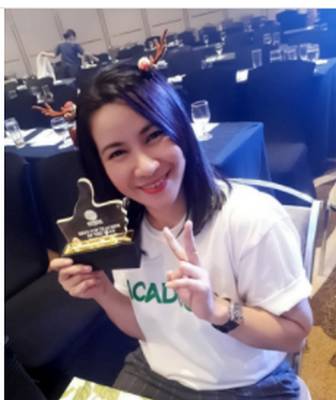人教英语3-6大学下册 Unit2 课文动画学习+单元常识点

电子教材
▼▼▼▼











动画视频学习
第二单元常识点
一、词汇
father 父亲;父亲
dad (口语)父亲;爹爹
man 男人
woman女人
mother 母亲;母亲
sister 姐;妹
brother 兄;弟
grandmother(外)祖母
grandma (口语)(外)祖母
grandfather (口语) (外)祖父
grandpa (口语) (外)祖父
family 家庭
二、语句
1. — Who’s that woman? 那位女士是谁?
— She’s my mother. 她是我母亲。
2. — Who’s that man? 那位男人是谁?
— Sarah’s grandfather. 萨拉的(外)祖父。
3. — Who’s that man? 那位男人是谁?
— He’s my father. 他是我父亲。
4. This is my friend, Amy. 这是我的兄弟埃米。
5. — Who’s that boy? 那个男儿是谁?
— He’s my brother. 他是我哥哥。
6. — Is she your mother? 她是你母亲吗?
— Yes, she is. 是的,她是。
7. — Is he your father? 他是你父亲吗?
— No, he isn’t. 不,他不是。
8. — Is he your brother? 他是你哥哥吗?
— No, he isn’t. 不,他不是。
9. This is my family. 这是我的家庭。
10. This is my grandmother. 这是我(外)祖母。
三、句型规划
1. — Who’s that+或人(man, boy, woman…)?
— He’s/ She’s+身份/名字.
e.g.: — Who’s that man? 那位男人是谁?
— He’s my father. 他是我父亲。
2. — Is he/ she your+称号(brother, mother, teacher…)?
— Yes, he/ she is.
No, he/ she isn’t.
e.g.: — Is she your teacher? 她是你的教师吗?
— Yes, she is. 是的,她是
。
3. This is my+家庭成员(grandfather, brother, sister…)
e.g.: This is my little brother. 这是我的弟弟。

电子教材
▼▼▼▼











动画视频学习
第一单元常识点
一、词汇
breakfast 早餐;早饭
English class 英语课
lunch 午饭;午饭
music class 音乐课
PE class 体育课
dinner(正午或晚上吃的)正餐
get up 起床
go to school 去上学
go home回家
go to bed 上床睡觉
over 结束
now 如今;当前
o’clock(标明整点)……点钟
kid 成人
thirty 三十
hurry up 快点
come on 快;加油
just a minute 稍等一会
二、语句
1. It’s 12 o’clock. It’s time for lunch. 十二点钟了。到吃午饭的时刻了。
2. It’s time to watch TV. 到看电视的时刻了。
3. Let’s play football. 让咱们踢足球吧。
4. — What time is it? 几点了?
— It’s 7 o’clock. 七点钟了。
5.Hurry up! 快点儿!
6. It’s time to go to bed. 到上床睡觉的时刻了。
7. School is over. 放学了。
8. Let’s go to the playground. 让咱们去操场吧。
9. Time to go home, kids. 到回家的时刻了,孩子们。
10. It’s time for English class. 
到上英语课的时刻了。
11. Breakfast is ready. 早餐预备好了。
12. I’m ready. 我预备好了。
三、句型规划
1. It’s + 钟点数 + o’clock.
e.g: It’s four o’clock. 四点了。
2. It’s time for + 名词(dinner, bed, school…)
e.g: It’s time for lunch. 该吃午饭了。
3.It’s time to/ Time to + 动词原形(sing, dance…)(+其他).
e.g. : It’s time to sing English song. 该唱英文歌了。

电子教材
▼▼▼▼











动画视频学习
第二单元常识点
一、词汇
spring 春天
summer 夏天
autumn 秋天
winter 冬天
season 时节
picnic 野餐
go on a picnic 去野餐
pick 摘;搜集
pick apples 摘苹果
snowman 雪人
make a snowman 堆雪人
go swimming 去游水
which 哪一个
best 最;最高程度地
snow 雪
good job 做得好
because 因为
vacation 假期
all 全;完全
pink粉色;粉色的
lovely 心爱的;秀丽的
leaf 叶子(复数leaves)
fall 落下;【美】秋天
paint 用颜料绘画
二、语句
1. — Which season do you like best? 你最喜爱哪个时节?
— Autumn. 秋天。
2. Look at my picture. 看我的画。
3. 
Classes start at 3 o’clock. 三点钟初步上课。
4. I like summer best because of Children’s Day.
我最喜爱夏天,因为儿童节。
5. — What do you do often do in summer? 你在夏天常常做啥?
— I often go swimming. 我常常去游水。
6. Good job! 做得好!
7. I like the trees. The colour is very pretty! 我喜爱这些树。颜色很秀丽!
8. I like autumn best. 我最喜爱秋天。
9. The weather is good and the colours are beautiful!
气候极好,颜色很秀丽!
10. — Why? 外啥?
— Because I like summer vacation. 因为我喜爱暑假。
三、句型规划
1. — Which season do you like best?
— I like + 时节 + best. / 时节.
e.g: — Which season do you like best? 你最喜爱哪个时节?
— I like spring best. 我最喜爱春天。
2. — Why (do you like + 时节)?
— Because + 缘由.
e.g: — Why do you like spring? 你为啥喜爱春天?
— Because there are beautiful flowers everywhere.
因为处处都有秀丽的花。

电子教材
▼▼▼▼











常识点
一、词汇
cleaned (clean的曩昔式)打扫
stayed (stay的曩昔式)停留;待
washed (wash的曩昔式)洗
watched (watch的曩昔式)看
had (have的曩昔式)患病;生病
had a cold 伤风
slept (sleep的曩昔式)睡觉
read (read的曩昔式)读
saw (see的曩昔式)看见
last 迩来的;上一个的
yesterday 昨日
before 在……之前
drank (drink的曩昔式)喝
show 表演 magazine 杂志
better (well的比照级)非常好的
faster (fast的比照级)更快的
hotel 旅馆 fixed (fix的曩昔式)修补
broken 破损的
lamp 台灯
loud 喧闹的;大声的
enjoy 享受……快乐喜爱;喜爱
stay 暂住;停留
二、语句
1. — What did you do last weekend? 你上星期末做啥了?
— I cleaned my room and washed my clothes on Saturday.
我星期六打扫房间,还洗了衣裳。
2. — Did you play football with Zhang Peng? 你和张鹏踢足球了吗?
— Yes, I did. 是的,我和张鹏踢足球了。
3. I watched some children’s shows on TV.
我在电视上看了一些儿童节目。
4. — Did you do anything else? 你还做了其他啥事儿吗?
— Yes, I cleaned my room and washed my clothes.
是的,我打扫了房间,还洗了衣裳。
5. You are a good boy! 你是一个好孩子!
6. — How was your weekend? 你周末过得怎么样?
— It was fine, thanks. 极好,谢谢。
7. — What did you do? 你(周末)做啥了?
— I stayed at home and watched TV.
我待在家里了,还看电视了。
8. Let’s go to the bookstore. 让咱们去书店吧。
9. I want to buy the new film magazine. 我想买期新的影片杂志。
10. — Was it interesting? 它风趣吗?
— Yes. 是的
11. — Did you like it? 你喜爱它吗?
— Yes, I did. It was great. 是的,我喜爱它。它很不错。
三、句型规划
1. — How was your weekend?
— It was good, thank you.
Not very good.
e.g: — How was your weekend? 你周末过得怎么样?
— Not very good. 不是极好。
2. — What did + 主语 + do(+曩昔时刻)?
— 主语 + 动词曩昔式(+其他).
e.g: — What did your mother do yesterday? 你母亲昨日做啥了?
— She went shopping with her friends. 她和她的兄弟去购物了。
3. — Did you + 动词原形(read, dance, swim…)(+其他)?
— Yes, I/ we did.
No, I/ we didn’t.
e.g. : — Did you see the new film? 你看那部新影片了吗?
— No, I didn’t. 不,我没看。
4. I want to + 动词原形(+其他).
e.g. : I want to travel around the world. 我想去举世旅行。
5. Was/ Were + 主语 + 描述词?
e.g. : Was Timmy tired yesterday? 昨日吉米累吗?

2021大学语文下册材料汇编
免费收取:
免费收取:
免费收取:
免费收取:
免费收取:
2021大学数学下册材料汇编
1-3大学免费收取:
第31课第32课
4-6大学免费收取:
第31课第32课

 微信扫一扫打赏
微信扫一扫打赏
 支付宝扫一扫打赏
支付宝扫一扫打赏


